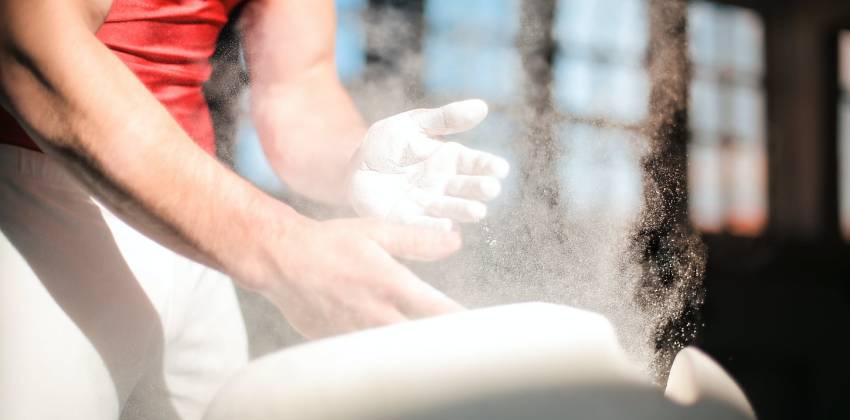Creatine helps the body produce more ATP so you can do more work, as well as helps your muscles recover from hard workouts.
In this article, I will discuss what creatine is and when you should take it.
Creatine has been a popular supplement for decades now and has been proven to be effective in improving performance in sports that require power and strength such as weightlifting, grappling, or sprinting.
This ingredient commonly seen in pre-workout supplements also improves muscle recovery after a workout by boosting production of ATP (adenosine triphosphate) which provides energy to cells.
Benefits of Creatine Before and After Workouts
Creatine is a nitrogenous organic acid that occurs naturally in human tissues. It is produced in the liver, pancreas, and kidneys.
Creatine is used to provide energy to muscles during short-term but intense bursts of exercise.
Creatine supplementation has been shown to produce significant improvements in short-term high-intensity activities, such as weightlifting. The ability of creatine supplementation to improve these activities by increasing the availability of phosphocreatine without any additional oxygen requirement supports the idea that it enhances high-intensity exercise capacity by increasing muscle energy availability.
Supplementation could also increase performance during endurance or long-term exercise because it reduces reliance on carbohydrates as an energy source while preserving the aerobic energy system’s role in sustaining prolonged bouts of activity.
Should You Take Creatine Before or After Your Workout?
Creatine is a nutrient that is found naturally in our bodies. It plays an important role in the process of energy production.
Some people like to take creatine before their workout, while others take it afterwards. There are pros and cons to taking creatine before or after your workout.
Creatine as a pre-workout
Some people say that taking creatine after your workout leads to more muscle growth because you are not depleting your muscles of energy during the workout like you would be if you were taking it before the workout.
Creatine supplements are used by athletes, bodybuilders, or anyone looking to build strength or increase their work capacity. Creatine supplements may also help to improve athletic performance indirectly by increasing water retention in muscle cells.
Creatine as a post workout
Others say that creatine increases hydration levels, which leads to better performance during the workout and more muscle growth during recovery time between workouts.
As Creatine increases ATP production, it helps with recovery time after intense physical activity. This means you have more energy to do what you need to do so you don’t feel exhausted all the time!
Optimal Dosage of Creatine Before or After Training Sessions
Creatine is one of the most researched supplements in existence, and it’s been shown to provide an array of benefits for athletes. One key question that many people have is “how much creatine should I take?”
The answer to this question depends on the goal of the person taking creatine. If you are looking to build muscle mass, you may want to take 3g-5g daily; this can be taken all in one serving (via a pre-workout or post workout supplement).
Potential Side Effects From Taking Creatine?
Creatine is one of the most popular supplements in the fitness industry. It’s also one of the most controversial ones. There are many arguments about its side effects, and now we will give an overview of those arguments and what science has to say about them.
Creatine is made from amino acids and can be found in meat and fish, mainly. It helps people build muscle mass and power by supplying energy to muscles that need it for intense workouts.
However, there are some side effects to creatine use that we will discuss now:
- Water retention: Creatine draws water into muscle cells which causes a person’s body weight to go up after creatine use. Although this is not a problem for all people who take creatine supplements, it can be a problem for those who have existing liver issues.
That being said, remember that the water retention actually helps deliver strength and endurance benefits during your workout too. So it’s not really a negative side effect.
The only thing is, if you have liver issues then we recommend that you don’t take creatine.
Conclusion on Taking Creatine Before or After Workouts
Deciding when to take creatine is often a debate between before and after your workout. People who prefer to take it before their workout will say it stimulates muscle growth, while people who prefer to take it after will say it prevents muscle breakdown post workout.
A study done by the Journal of Strength and Conditioning Research concluded that there was no significant difference in strength gains or body composition changes between those who took creatine before or after their workouts.
The conclusion of this article is that there does not seem to be an ideal time or place for taking creatine. As long as you take it sometime during your day, you will load up on creatine and experience the benefits as time progresses.
That being said, we personally like taking creatine in pre-workout supplements; in a nice tasting pre-workout, it hides the bitter taste and grainy texture of creatine very well, making it more enjoyable to consume.
Trust us, if you’ve ever had unflavored creatine, you’ll want to give it a miss…
See The Top Pre-Workouts
– Click Here –

